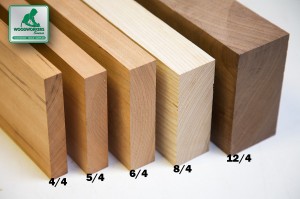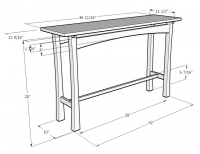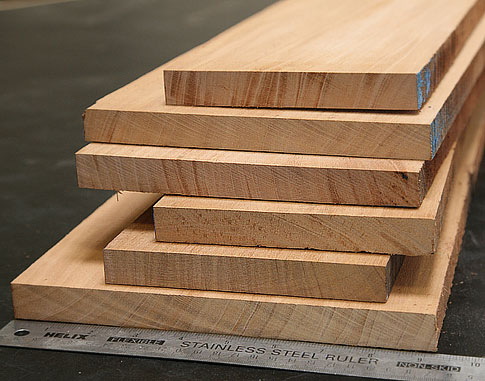
$5.00 /Each
mix/match strips and squares
(48 U.S. Ground)
Delivery & Pick-Up Options
Log in to see delivery dates
Ready in 48 hours - Tempe, Phoenix or Tucson
Schedule it during checkout
- Natural rich brown color
- Food safe
- Kiln Dried
You'll like tropical walnut because of its remarkably consistent and bold cocoa color. The wood is related to the American black walnut that you might be used to seeing, but this variety grows in South America. The wood is slightly softer, much more straight grained, and much more consistent in color.
You're in excellent hands with these cutting board strips, expertly cut from premium kiln-dried lumber. They come prepped and ready for you to rip, cut, and arrange into beautiful color combinations and patterns, allowing you to craft your own custom, handcrafted cutting board with ease.
PRO TIP
Expect to do a little prepping to any surfaces you'll glue together
| Thickness | Choose 3/4" or 1-3/4" |
| Width | 1-3/4" |
| Length | 18" |
| Grade | Kiln dried, clear |
Woodworkers Also Recommend These
3.25
lbs /Bd. Ft.Wood Texture
Ease of Finishing
Dark chocolate brown sometimes with a purple cast.
Mostly up to 60 feet in height with diameters up to 36"; sometimes free from branches for 30 feet but more frequently clear to 10-15 feet.
Nogal, Peruvian Walnut, Tropical Walnut
Decorative veneers, furniture, cabinetwork, interior finish.
The Joys of Building with Great Woods
Understanding hardwood lumber starts right here with these wacky fractions.
If you're expecting perfect clear lumber 100% of the time, you're in for a surprise. Here's a summary of the hardwood lumber grades and what to expect from them.
Board feet isn't your everyday kind of math, but these three simple steps make it easy to figure out your project.
Here's a handy (and free) Excel worksheet that helps you estimate the lumber needs for your project.
Are woods poisonous? Hazardous to use in cutting boards or baby cribs? Find out here.
Wood is like a sponge, and it's always in a state of absorbing or releasing moisture to stay equalized with its environment. The problem with that is it also swells and shrinks. Here's what you need to know to protect your project.















